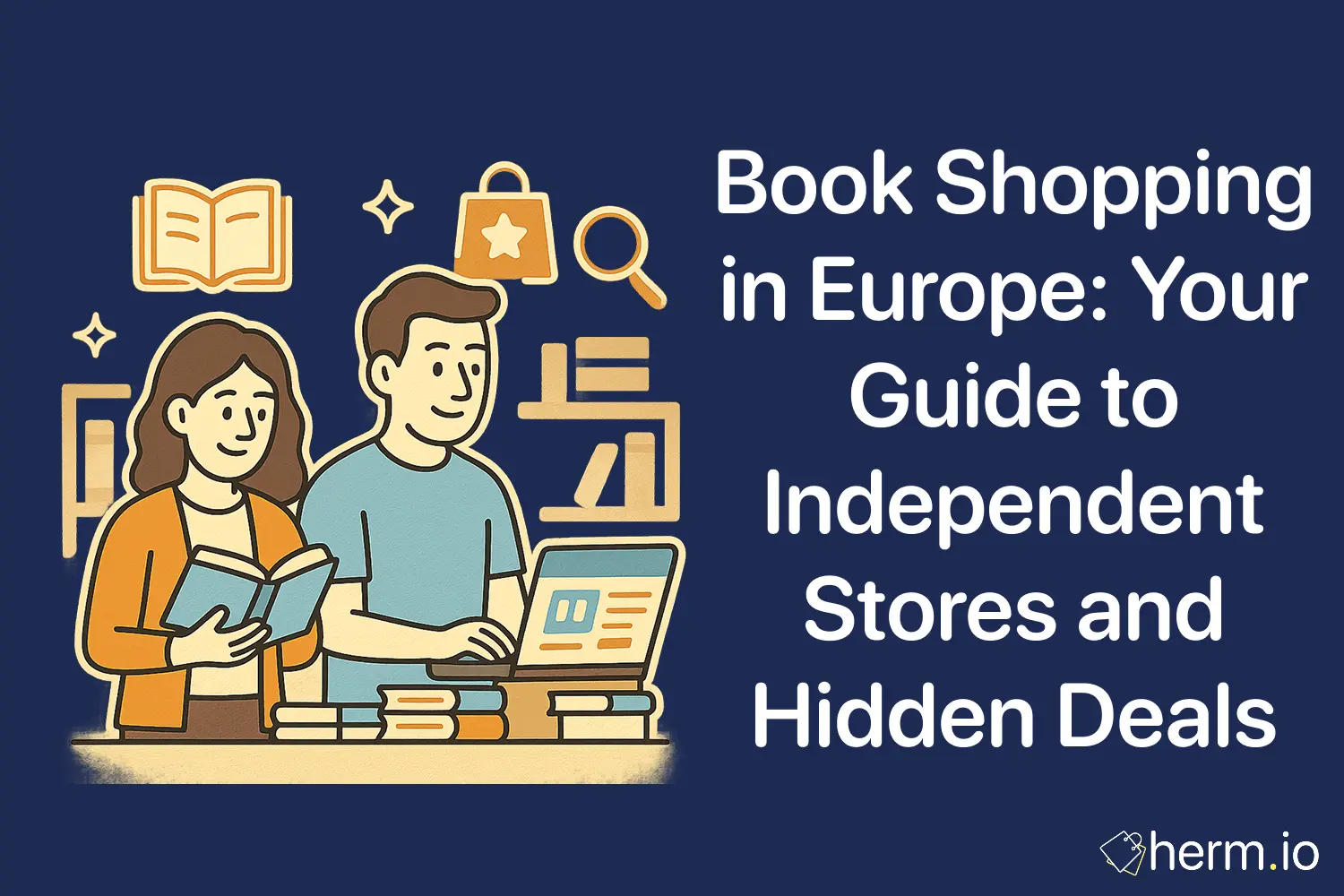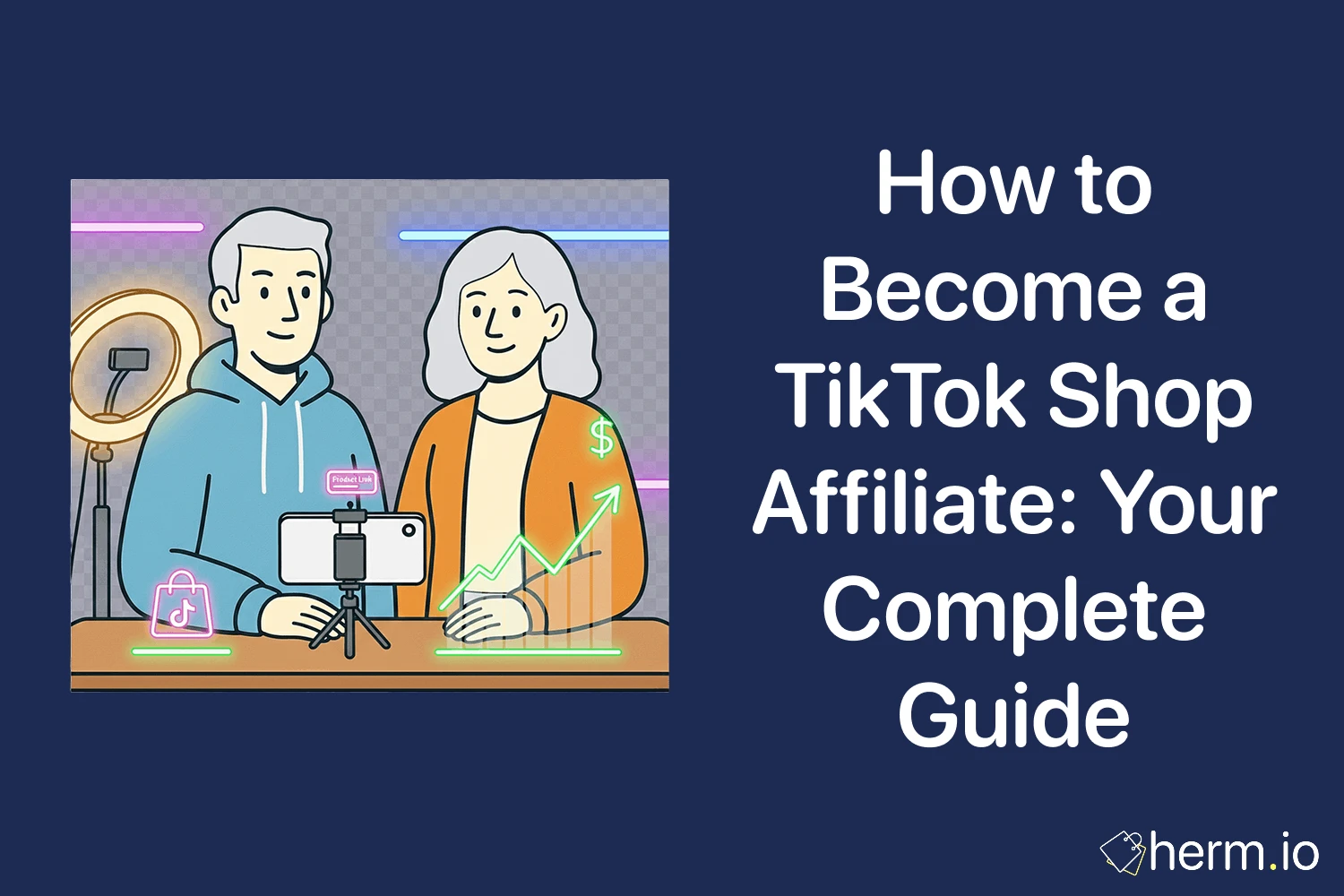
Three years ago, whilst living in Lyon, I stumbled onto Decitre's website searching for a philosophy text my local library didn't stock. The interface felt refreshingly simple; the price undercut Amazon by €8, and the book arrived in two days with a handwritten receipt tucked inside. That small discovery shifted how I think about buying books online.
Europe's book retail landscape rewards curiosity. Beyond the obvious giant, there's a surprisingly robust network of independent shops, regional chains, specialised marketplaces, and clever subscription services. Many offer excellent stock, competitive pricing, and delivery that works across borders. The challenge isn't finding alternatives—it's knowing where to look and how to combine them effectively.
This guide maps the terrain. You'll find practical routes to new releases, backlist titles, academic works, rare editions, and digital libraries. Most importantly, you'll learn to build a personal system that keeps you reading without emptying your account.
Quick Wins: Start Here
- For new releases: Check Bookshop.org or your country's main independent chain (Waterstones, Thalia, Decitre) before defaulting to Amazon
- For backlist and classics: Search used platforms like medimops, World of Books, or Booklooker—quality is often excellent at 40-60% off retail
- For academic titles: Subscribe to publisher newsletters (Oxford, Cambridge, Verso) and catch seasonal sales at 30-50% discounts
- For e-books: Trial Kobo Plus or Storytel for a month when you've got 5+ titles queued; pause between reading sprints to avoid wasted subscription fees
Independent Book Retailers Worth Bookmarking
Independent bookshops have quietly professionalised their online presence. The stereotype of clunky websites and uncertain stock no longer holds; many now run sophisticated e-commerce platforms with excellent search, real-time inventory, and swift EU-wide shipping.
Why bother with independents?
Fixed book pricing laws across much of Europe mean new releases cost roughly the same everywhere. Your choice of retailer matters less for price and more for curation, community impact, and avoiding platform lock-in. Independents excel at discovery—staff picks, thematic lists, and seasonal selections surface titles algorithms miss.
Platforms that aggregate independents:
Bookshop.org operates across the UK and partners with European shops. Each purchase channels a percentage to your chosen bookshop (or a general fund supporting independents). The site feels clean, stock information stays current, and checkout works smoothly.
Hive (UK-focused) lets you nominate a local shop to receive benefit from your order. Particularly strong for children's books, paperback fiction, and quick reorders of favourites.
Country-specific champions handle local languages and often maintain better stock of regional publishers:
- France: Decitre ships reliably; Cultura combines books with stationery and media; Mollat (Bordeaux-based) has exceptional curation
- Germany: Thalia dominates but Osiander competes well; "genialokal" connects you to local independents digitally
- Spain: Casa del Libro for breadth; La Central (Barcelona) for curated selections
- Italy: IBS and LaFeltrinelli both maintain deep catalogues including English-language titles
- Netherlands: Libris coordinates independent bookshops with solid English sections
- Nordics: Adlibris and Bokus (Sweden), Ark (Norway), Saxo (Denmark) all handle cross-border shipping efficiently
Shopping smarter with independents:
Search by ISBN rather than title when hunting specific editions—different print runs and international editions can hide under similar names. Many stores offer wishlists with automatic stock alerts; useful for tracking out-of-print titles that occasionally resurface.
Signed and exclusive editions appear frequently at independents, particularly around launches. These hold value better than standard copies and make memorable gifts. For collectors, it's worth following 2-3 shops on social media to catch announcements.
Multilingual Shopping Strategy
Reading across languages opens access to better deals and broader catalogues. The same book might be overpriced in one market whilst discounted next door; regional chains run different promotional cycles, and paperback release schedules vary by country.
Key multilingual retailers:
- French: Decitre, FNAC, Cultura
- German: Thalia, Booklooker (excellent for used academic titles), medimops (used with quality grading)
- Spanish: Casa del Libro, Todocoleccion (used and collectible)
- Italian: IBS, LaFeltrinelli, Libreriauniversitaria (technical and academic focus)
- Dutch: Bol's book section covers Dutch and English
- Nordic languages: Adlibris serves Sweden and Finland; Bokus (Sweden), Ark (Norway), Saxo (Denmark) all maintain strong catalogues
Cross-border shopping tips:
Within the EU, VAT is straightforward and shipping remains predictable. The main variable is the free shipping threshold—most retailers set this between €25-€50. Bundling orders or coordinating with friends makes sense for expensive art books or multiple titles.
UK-EU transactions require more attention post-Brexit. Many retailers now calculate duties at checkout (look for "DDP"—Delivered Duty Paid). For higher-value orders, verify the customs handling process before completing purchase.
Language learners can exploit parallel editions effectively. Choose a book available in your target language and your native language; read side-by-side starting with approachable modern classics or YA fiction where translations are abundant.
Academic and Scholarly Titles
Academic publishing maintains surprisingly reader-friendly channels if you know where to look. You don't need institutional access to find serious non-fiction at reasonable prices.
Publisher direct sales:
European academic publishers run periodic sales—typically 20-40% off. Subscribe to newsletters from Oxford University Press, Cambridge University Press, Polity, Routledge, Springer Nature, De Gruyter, and Verso. Sales tend to cluster around academic calendar transitions (September, January, June).
Open Access and print-on-demand:
An increasing number of scholarly monographs are published Open Access. University presses often list OA editions alongside commercial print versions. Many offer affordable print-on-demand paperbacks—excellent for heavily annotated reading.
Used academic marketplaces:
German platforms dominate here. medimops and Rebuy maintain huge stocks with transparent grading; Booklooker functions as a marketplace connecting independent used book dealers. World of Books (UK/EU) ships reliably with good return policies. Alibris handles US-EU cross-shipping for harder-to-find titles.
Textbook strategy for independent learners:
Older editions work perfectly for self-study. Core content rarely changes dramatically between editions; an N-1 or N-2 edition often costs 70-80% less than current versions. For technical subjects, own an older edition and borrow the latest from a library to check updated problem sets or errata.
Small press discoveries:
European academic and cultural presses worth following include MIT Press (EU distribution), Fitzcarraldo, Seagull Books, Reaktion, Repeater, and Thames & Hudson. Their end-of-season sales are legendary amongst regular readers.
E-book and Audiobook Subscriptions
Subscription services make sense for frequent readers and daily commuters. The economics work when you'd otherwise buy 2+ books monthly at full price.
Top European alternatives to Kindle Unlimited:
Kobo Plus integrates beautifully with Kobo e-readers and offers strong mobile apps. The catalogue leans toward genre fiction (crime, romance, thrillers) but includes solid indie press representation. Higher tiers bundle audiobooks.
Scribd/Everand maintains a genuinely broad catalogue—e-books, audiobooks, magazines, and documents. Interface feels clean; discovery features work well. Good for readers who sample widely rather than committing to series.
Storytel started in Sweden and has expanded across Europe with impressive momentum. Audiobook selection rivals dedicated platforms; particularly strong for Nordic literature and European originals.
Bookmate adds social reading features—shareable shelves, reading circles, annotations. Catalogue includes substantial indie and international content.
Perlego targets professional and academic readers. Think "Spotify for non-fiction." Pricier than entertainment-focused services but exceptional value if you read business, tech, design, or scholarly titles regularly.
Public library apps deserve mention. Many European library systems now offer OverDrive/Libby or BorrowBox. Free with a library card; selection varies significantly by city but often includes recent bestsellers.
Choosing the right service:
Device compatibility matters. Kobo Plus makes most sense if you own a Kobo device. Phone-first readers should prioritise app quality—offline support, typography options, sync reliability.
Consider format mix. If you alternate between reading and listening, services bundling both formats save money. Check your favourite publishers' presence; each platform maintains different licensing agreements.
Subscription economics:
Rotate services quarterly to access different catalogues. Most platforms preserve your library during paused periods. Build a wishlist of 5+ titles before starting a trial to maximise value. When reading slows, pause rather than maintain unused subscriptions.
Rare and Collectible Books
Hunting first editions, signed copies, or beautiful press runs across Europe requires knowing trusted marketplaces and understanding condition grading.
Reliable platforms:
Biblio aggregates independent dealers with strong condition documentation and seller ratings. Interface remains simple; search is effective.
viaLibri functions as a meta-search scanning multiple marketplaces simultaneously. Saves considerable time when tracking obscure titles.
ILAB (International League of Antiquarian Booksellers) represents vetted dealers across Europe. Membership signals professionalism and expertise.
Country specialists:
- Livre Rare Book (France): French collectibles and press editions
- Maremagnum (Italy): Art, architecture, cinema focus
- ZVAB (Germany): Broad continental coverage, historically linked to AbeBooks
- Booklooker and Antiquariat.de (Germany): Out-of-print and scholarly runs
- Todocoleccion (Spain): Collectibles including vintage magazines and ephemera
Safe buying practices:
Condition grading follows industry standards—"Fine," "Very Good," "Good," "Fair"—but descriptions matter more than labels. Read carefully; request additional photos of spine, dust jacket edges, previous owner marks.
For modern first editions, edition points distinguish valuable copies from later printings. Small details—publisher imprint, price on dust jacket, number lines—make significant price differences. A quick search for "[title] first edition points" before purchasing prevents expensive mistakes.
Budget appropriately for shipping. Insured, tracked delivery is worth the cost for collectibles. For UK-EU cross-border purchases, clarify customs handling upfront to avoid surprise fees.
Maintain records. Save invoices and correspondence; provenance documentation matters for valuable books, whether for insurance, resale, or simply knowing the book's history.
Building Your Personal Book-Buying System
Effective book shopping isn't about finding one perfect store—it's about combining sources strategically.
For new releases:
Check your preferred independent or regional chain first. If signed or special editions exist, buy immediately—they sell quickly and regret lingers. For standard editions without urgency, add to a wishlist and wait for seasonal promotions (summer reads, back-to-school, holiday sales).
For backlist and classics:
Compare prices at country-specific chains, then search used platforms. Prioritise "Very Good" or better condition; check return policies. Quality used books often arrive indistinguishable from new at half the price.
For academic and non-fiction:
Subscribe to 2-3 publisher newsletters. Mark seasonal sale periods in your calendar. For textbooks or technical references, try Perlego for a month and take comprehensive notes.
For digital content:
Maintain one subscription at a time. Build a queue of 5+ titles before activating trials. Read intensively, then pause until your next list accumulates. This rhythm prevents paying for unused access.
For collectibles:
Save searches on viaLibri and Biblio for specific authors, ISBNs, or press runs. When interesting listings appear, verify edition details before purchasing. Store valuable books properly—cool, dry, away from direct sunlight; use mylar covers for fragile dust jackets.
Cost-Cutting Techniques
Bundle shipping: Most independents offer free shipping over a threshold (typically €25-€50). Group purchases to cross it.
Choose international paperback editions: Lighter and often cheaper whilst containing identical text to UK hardbacks.
Library first, buy later: Borrow new hardcovers from your city library; if you love the book, buy the paperback when it releases at lower cost.
Open Access checking: For academic reading, search "[title] PDF publisher" to verify whether legitimate OA editions exist before purchasing print.
Student verification: UNiDAYS or Student Beans can unlock retail discounts beyond textbooks if you have access.
Gift card promotions: European chains sometimes run "spend €50, get €10 credit" offers. Stack these with preorders or expensive art books.
Delivery, Returns, and Practical Matters
EU-to-EU shipping: VAT included at checkout; delivery times predictable. Verify each store's free shipping minimum.
UK-EU cross-border: Post-Brexit, check whether duties are calculated at checkout (DDP). For valuable orders, this prevents surprise fees.
Returns: Distance-selling regulations typically allow returns within 14 days if unopened. Individual stores set specific policies; read before purchasing. Used books often have tighter return windows—buy from sellers with clear policies.
Packaging: For condition-sensitive purchases (hardcovers, collectibles), choose retailers known for solid packaging or request reinforcement.
Accessibility and Format Options
Large print: Many European retailers offer large-print filters. Alternatively, search by ISBN with "large print" appended to the title.
DRM-free e-books: Prefer ePub format over proprietary systems for device flexibility. Small presses often sell DRM-free directly from their websites.
Audiobook apps: Storytel and Kobo's audiobook services offer polished experiences with speed controls and reliable bookmarking. For heavy annotators, pair audio with inexpensive print copies.
Quick Reference List
Independents and chains: Bookshop.org, Hive, Blackwell's, Waterstones, Decitre (FR), FNAC (FR), Thalia (DE), Casa del Libro (ES), IBS/LaFeltrinelli (IT), Libris (NL), Adlibris/Bokus (Nordics)
Used marketplaces: medimops, Momox, Rebuy, World of Books, Booklooker, Todocoleccion
Academic publishers: OUP, CUP, Polity, Routledge, Verso, MIT Press, Princeton UP, De Gruyter
Subscriptions: Kobo Plus, Scribd/Everand, Storytel, Bookmate, Perlego, Libby/BorrowBox
Rare and collectible: Biblio, viaLibri, ILAB dealers, Livre Rare Book, Maremagnum, ZVAB
Final Thoughts
Smart book shopping across Europe rewards exploration. The ecosystem is richer than most readers realise—independent bookshops with modern e-commerce, regional chains with deep catalogues, specialised marketplaces for used and rare titles, thoughtful subscription services for digital readers.
Build a simple personal system: maintain a wishlist, subscribe to one digital service at a time, check two used platforms for backlist titles, treat yourself to occasional independent editions. That rhythm keeps reading affordable, sustainable, and joyful.
Every purchase shapes the book ecosystem you want to inhabit. Spreading your spending across independents, regional chains, used marketplaces, and considerate subscriptions supports a healthier, more diverse reading culture across Europe.
FAQ
How do I find books in English when shopping on non-English European sites?
Most major European retailers include language filters in their search interfaces. Look for "Language" or "Langue" or "Sprache" in the filter sidebar. Alternatively, add "English" to your search query. Sites like Thalia (Germany), Decitre (France), and IBS (Italy) maintain substantial English-language sections with clear labelling.
Are used books from European marketplaces reliable in terms of condition?
German platforms like medimops and Rebuy use transparent grading systems and generally deliver books matching or exceeding stated condition. Start with "Very Good" grades; check seller ratings on marketplace platforms like Booklooker. Most reputable sellers provide clear return windows (typically 14 days). Request additional photos for collectible purchases.
What's the most cost-effective way to handle e-book and audiobook subscriptions?
Avoid maintaining multiple active subscriptions simultaneously. Instead, build a wishlist of 5-7 titles on one platform, activate a trial or monthly subscription, read intensively over 2-3 weeks, then pause. Rotate between services quarterly to access different catalogues. Most platforms preserve your library during paused periods.
How can I save money on academic books without institutional access?
Subscribe to newsletters from major academic publishers (Oxford, Cambridge, Polity, Verso) to catch seasonal sales at 30-50% off. Search used German marketplaces (medimops, Booklooker) for scholarly titles at significant discounts. Consider N-1 editions for self-study—core content rarely changes drastically between editions. Check whether Open Access versions exist before purchasing; many university presses now offer affordable print-on-demand alongside OA digital editions.

Théo Baptiste Lefèvre
I'm a tech enthusiast and trend researcher who keeps teams informed about the latest in technology, AI, and digital innovation. I specialize in identifying emerging tools and breakthroughs, serving as a bridge between cutting-edge developments and practical applications.

.png)








.png)

.png)
.png)
.png)